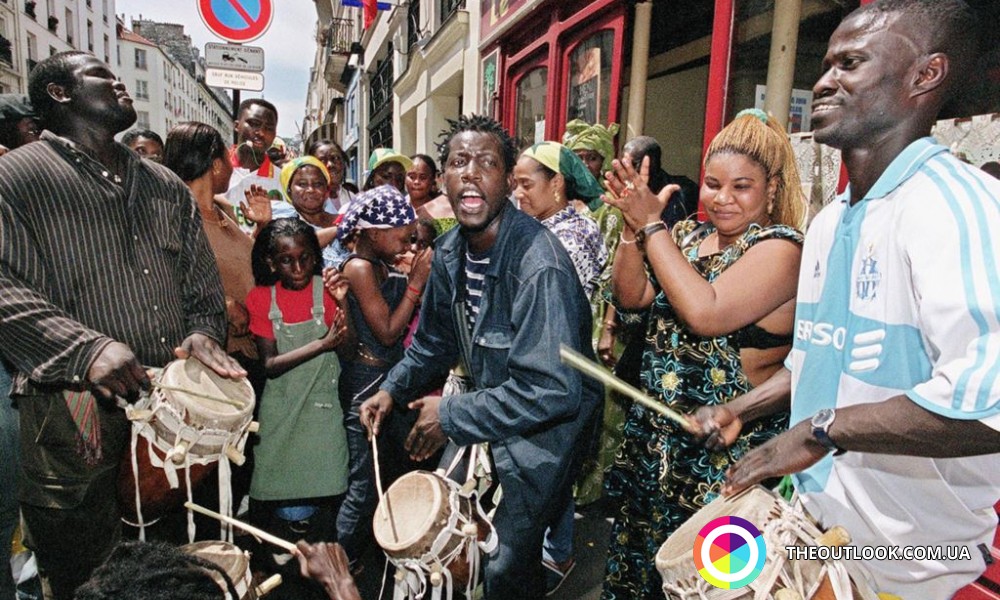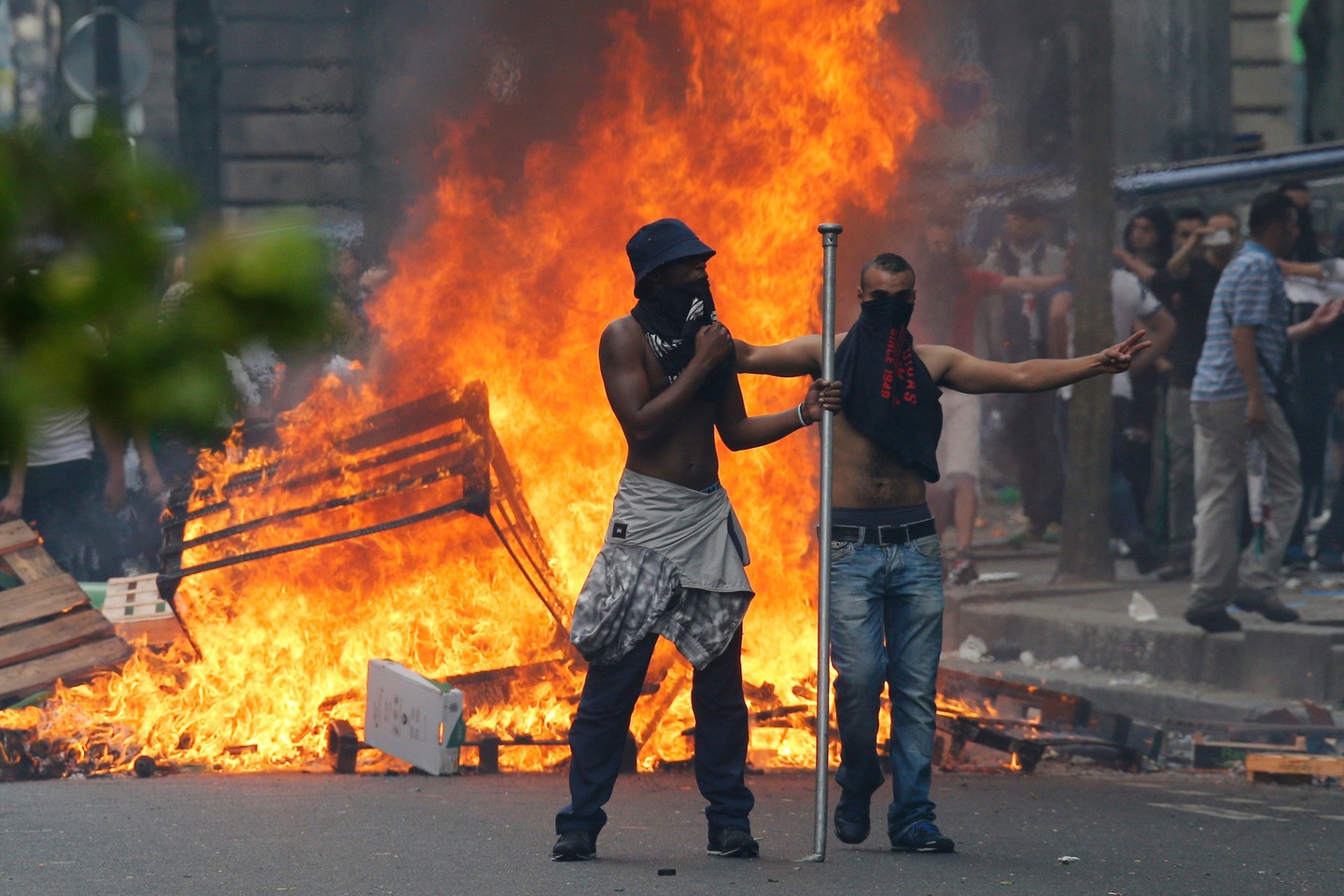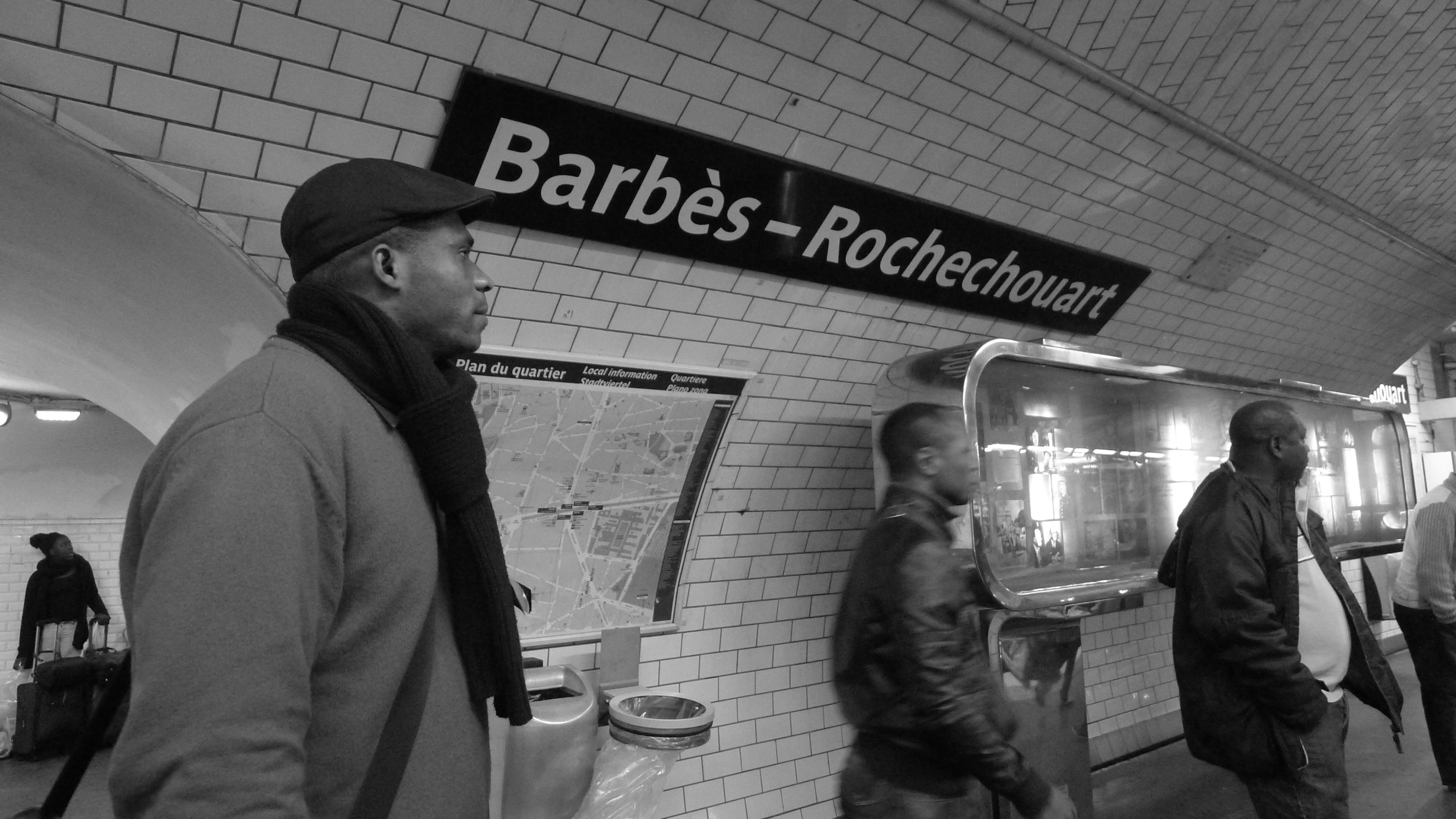World ghettos: Colorful Paris

The French say that the famous film with participation of Luc Besson District B 13 was inspired by nothing else but crime-ridden life of the Barbès neighbourhood. Just in case you have forgotten or have not seen this movie, it tells about Paris district inhabited by black people and isolated from the city where anarchy reigns, and the only law states that he is rights who has more weapons. It is clear that movie is a fiction, nevertheless, it is true that police avoids coming to the vicinity of the Barbès-Rochechouart Métro station. Thence population does not recognize police, and usually such visits of guardians of order end up with shootings. Sure thing, cops interfere into production and sale of drugs and try to control prostitution...

Contrary to popular belief, Barbès adopted such life style not after African migrants moved in. Even back in the nineteenth century this place was famous for a sharp temper and widespread chaos. As a suburb of Paris, the Goutte d'Or (formed name of Barbès), lured most motley crowd from all over France with its pubs and brothels. It was a perfect destination to take refuge from justice, and give full swing to fun. By the way, the famous author Émile Zola was not above such leisure, and even dedicated his novel with the eloquent title L'Assommoir (The Drinking Den) to the district. This name was written on the sign of the legendary pub where Parisians from all districts spent their days and nights, because inside the city alcohol was more expensive due to tax. Therefore, Zola and other non-strangers to the bottle, used to cross the conditional border between the capital and the suburbs and swing from the chandelier for a penny.
In the twentieth century, when Barbès joined the eighteenth arrondissement of Paris, Africans who went to Europe in search of better life, began to move in. There they found lower-than-average housing prices, more job opportunities, and nobody studied their documents. Most of the time they were engaged in illegal business - mainly sorting and distribution of drugs in the city and the country. Such activities often ended up with police raids, so local inhabitants got more and more isolated, only very courageous guys left the district territory.

Today, many children of migrants born in the Goutte d'Or have never been outside, so Montmartre, Senna, the Louvre and other attractions for them are as far as if they lived in their native Africa. Of course, many of them are trying to lead an honourable life peddling bright fabrics, fruits, working as labourers in the neighbouring areas. Some Barbès residents, understanding that these activities bring less money, somehow manage to get registered for social security allowance and then they do not work and are not engaged in criminal activities. However, very few people benefited from being lazy. Having nothing to do, unruly Africans put up fights and stabbing with Arabs, brutally kick off timid Chinese dreaming of Chinatown, and for the sake of fun rob Parisians who accidently drop in here. The French Government understands that the situation is critical, and the most horrible thing is that similar districts exist in Lyon, Marseille, Strasbourg...
As mayor of Paris, the future president of France Jacques Chirac once said that the place has a special atmosphere with integral attributes of noise and smell. This ultra xenophobic quote by not the most right politic illustrates the fact that the problem is not just there, it spins out of control. Today, "new" Africans are being employed and moved to other areas to make their concentration not so vast inside one district, so the basic aspirations of the officials are sent to the future, because the existing Goutte d'Or and other ghettos are unlikely to be rearranged.

Most interesting is that the tourists are treated very favourably there, as they bring money and some variety to harsh life. Of course, everyone is advised to go for a walk along Barbès boulevards with a minimum of valuables and preferably during daylight hours. It is a prime territory for new impressions, from the unique regional cuisine with couscous and lamb, real street rap, amazing dancing, to the opportunity to smoke a counterfeit "Marlboro" cigarette, well, or something stronger - marijuana is offered in all languages.
This walk will not just open another Paris, but will definitely make one think about globalization of our planet and that the racial conflicts in the 21st century is a real problem that feels more and more acutely. Barbès is the best illustration of the fact that it is not a solution to close all new comers inside one ghetto, but just an attempt to delay solution, because every day both Africans and other migrants become more and more numerous, and for good reason such areas are compared with time bomb.





















